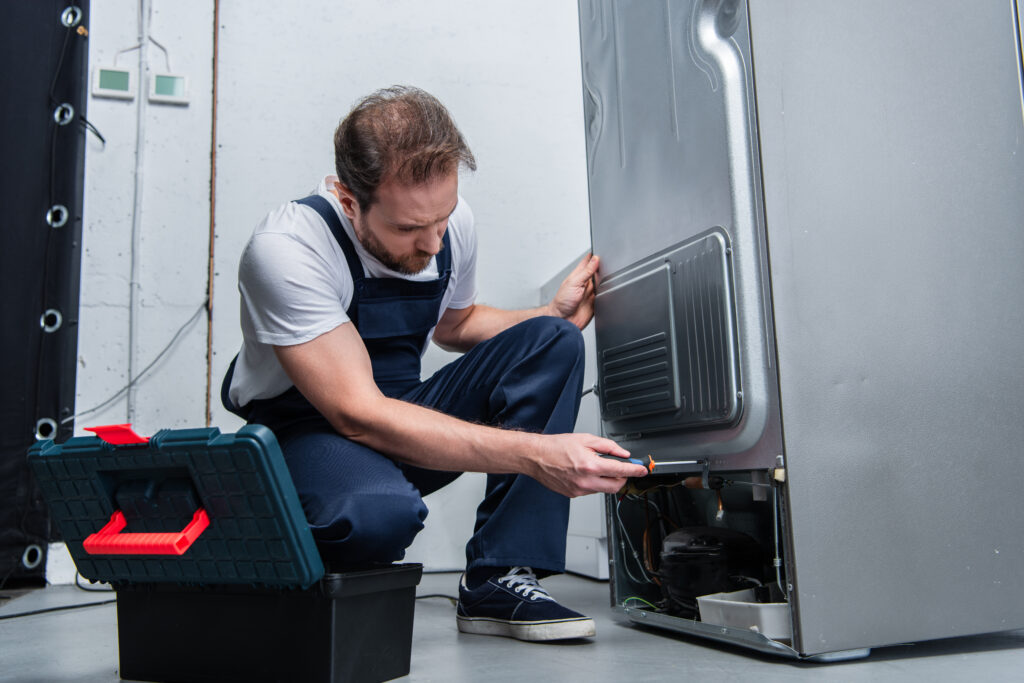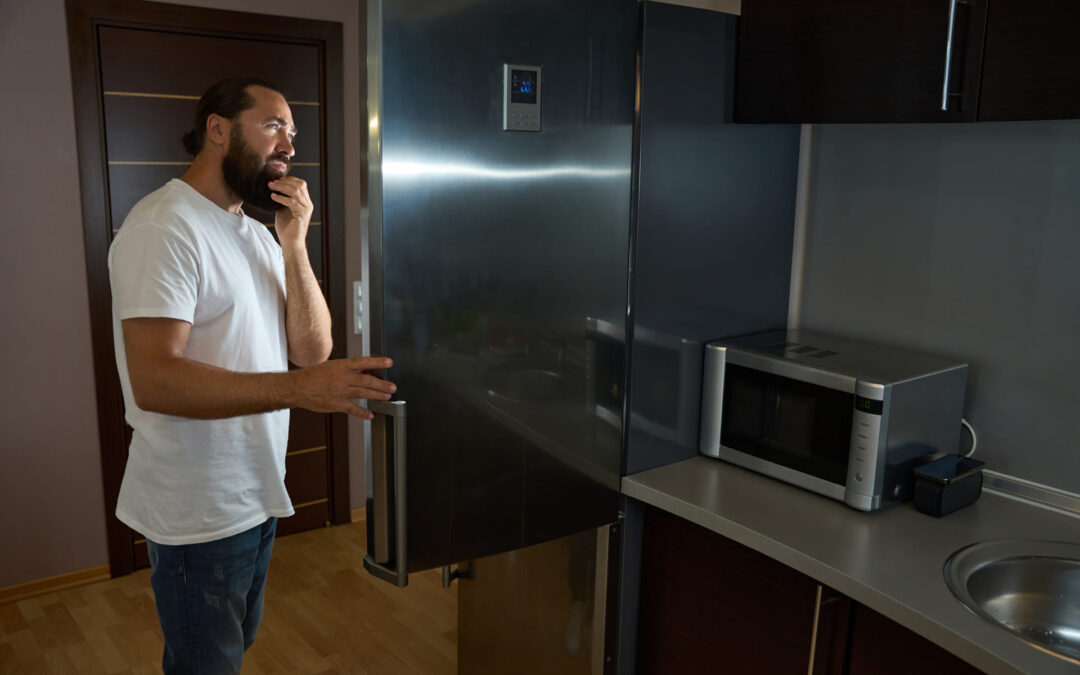A refrigerator is one of the most essential appliances in any home. It runs constantly, keeping food fresh and preventing waste. When it starts showing signs of failure, ignoring them can lead to costly repairs or even replacement. Recognizing these warning signals early by calling an appliance repair service can help avoid major issues and ensure an efficient cooling system.
Warning Signs Your Refrigerator May Need Repairs
A refrigerator may seem like it’s working fine, but small changes in performance can indicate deeper problems. Renew Appliance Repair service in Slidell shares an example. “A homeowner once noticed that their milk spoiled a few days before the expiration date. At first, it seemed like bad luck, but then they realized other foods weren’t lasting as long either. That’s when they called an us and we discovered the fridge wasn’t cooling properly due to a malfunctioning evaporator fan. These subtle signs are easy to miss, but addressing them early can prevent expensive breakdowns.”
- Food spoiling faster than expected
- Inconsistent temperatures inside the fridge
- Higher energy bills due to inefficient operation
1. Refrigerator Not Cooling Properly
When a refrigerator fails to maintain a steady temperature, food safety is at risk. The ideal temperature for a fridge is 37-40 degrees Fahrenheit, while freezers should stay at 0 degrees. If food feels warmer than usual or ice starts melting unexpectedly, internal components may be struggling.
- A faulty thermostat can cause inconsistent temperatures
- Blocked air vents prevent proper airflow
- A failing compressor may struggle to keep things cold
2. Strange Noises Coming from the Refrigerator
A refrigerator isn’t silent, but sudden loud or unusual sounds can signal mechanical problems. Clicking noises might point to a failing start relay, while a buzzing sound may mean the compressor is working too hard. Gurgling or hissing noises could indicate refrigerant issues.
- Buzzing or humming often means electrical issues
- Loud clicking can be a sign of a failing compressor
- Rattling might suggest loose components or fan problems
3. Food Spoiling Faster Than Expected
Food that spoils before its expiration date often points to temperature fluctuations inside the refrigerator. Perishable goods like dairy and meat should remain consistently chilled. If they start going bad sooner than expected, the fridge might not be cooling properly.
- Improper cooling leads to bacteria growth and food waste
- Door seals may be letting in warm air
- Refrigerant levels could be low, affecting performance
4. Water Leaking Under the Refrigerator
Puddles forming beneath a refrigerator should never be ignored. Water leaks may come from a clogged defrost drain, a cracked water line, or an overflowing drip pan. Ignoring these leaks can lead to mold growth and floor damage.
- A blocked defrost drain can cause water to overflow
- Cracks in the water line may lead to constant leaks
- An improperly positioned drip pan might be the issue

refrigerator by screwdriver in kitchen
5. Ice Maker Not Producing Ice Correctly
An ice maker that stops working or produces small, misshapen cubes may be dealing with water supply issues. If ice tastes strange or appears cloudy, minerals may be accumulating in the system. Regular maintenance helps prevent blockages and keeps ice fresh.
- Frozen water lines can prevent ice production
- A faulty water inlet valve disrupts water flow
- Mineral buildup can clog filters and affect taste
6. Excess Frost in the Freezer
While some frost is normal, excessive buildup inside the freezer signals a problem. A broken defrost system may cause ice to accumulate, leading to poor airflow and inefficient cooling. Doors that don’t seal properly also allow moisture to enter, contributing to frost issues.
- A faulty defrost heater causes ice accumulation
- Broken door seals allow warm air inside
- Poor airflow leads to uneven cooling
7. Refrigerator Running Constantly
A fridge that never stops running might have an issue with its thermostat, condenser coils, or door seals. If the unit is working harder than necessary, energy bills will increase. Cleaning the coils and checking for worn-out seals can help resolve this issue.
- Dirty condenser coils force the fridge to overwork
- A malfunctioning thermostat keeps the compressor running
- Leaky door seals let cold air escape
8. Bad Odors Coming from Inside the Refrigerator
Lingering smells aren’t always due to spoiled food. Persistent odors may indicate mold growth in hidden areas, a clogged drain, or even a refrigerant leak. Cleaning the interior regularly and checking for drainage issues can help eliminate unpleasant smells.
- Mold and bacteria thrive in damp environments
- A clogged drain can lead to standing water and odors
- Refrigerant leaks may create a chemical-like smell
9. Refrigerator Door Not Closing Properly
A fridge door that doesn’t seal tightly allows warm air inside, making the appliance work harder. This can lead to spoiled food and higher electricity usage. Testing the seal with a dollar bill can help determine if it needs replacing.
- Worn-out gaskets prevent a proper seal
- Hinges may be misaligned, affecting closure
- Loose door handles can also cause improper sealing

Key Takeaways for Refrigerator Maintenance and Repair
According to Renew Appliance Repair service, a failing refrigerator shows signs long before it completely stops working. Paying attention to cooling performance, sounds, and leaks can prevent expensive repairs. Regular maintenance helps extend the appliance’s lifespan and ensures energy efficiency.
- Inconsistent temperatures may indicate cooling issues
- Strange noises could signal mechanical failure
- Leaks and frost buildup require immediate attention
Frequently Asked Questions About Refrigerator Repairs
Why is my refrigerator making a loud humming noise?
A loud humming noise often comes from a struggling compressor or a malfunctioning fan. Cleaning the condenser coils can sometimes reduce the noise.
How can I tell if my refrigerator door seal is bad?
An easy way to check is by placing a dollar bill between the door and the seal, then closing it. If the bill slides out easily, the seal needs to be replaced.
What should I do if my fridge isn’t cooling but the freezer is working?
This may indicate a blocked airflow vent or a failing evaporator fan. Checking for ice buildup near the vents can help diagnose the issue.
Is it worth repairing an old refrigerator?
If the fridge is over 10-15 years old and the repair costs exceed half the price of a new one, replacement might be the better option.
Why does my refrigerator keep running constantly?
A constantly running fridge could mean dirty condenser coils, a faulty thermostat, or warm air seeping in through worn-out door seals.


